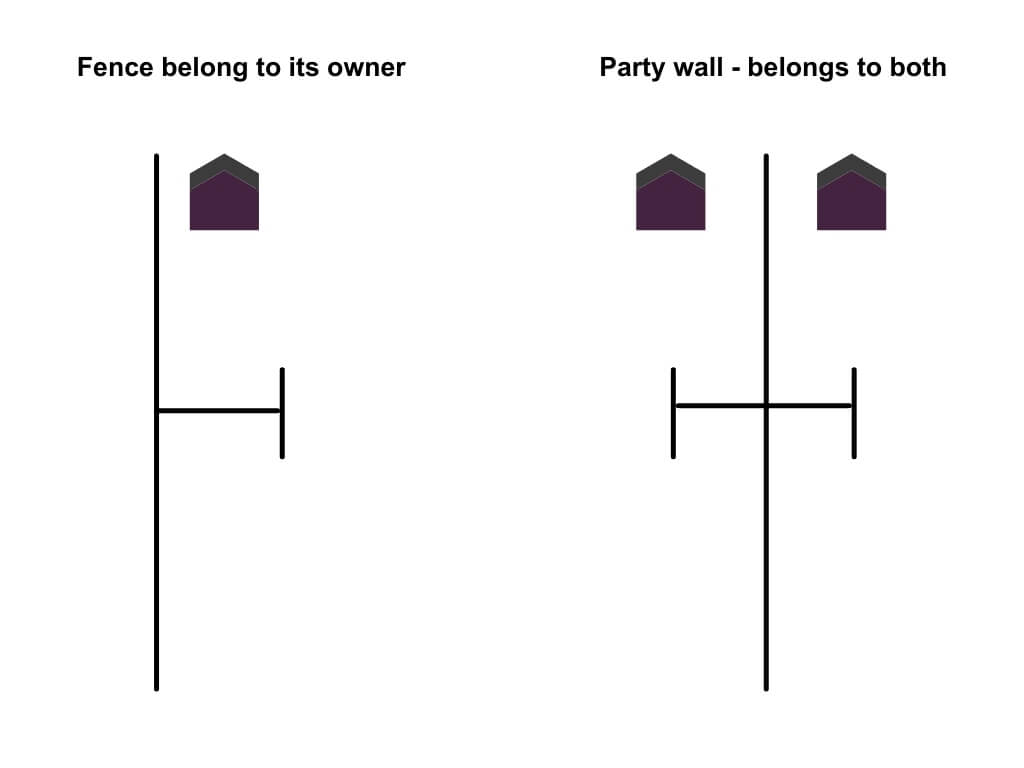Whose Fence Is It Anyway?
Boundary disputes are common problems between neighbours which have the potential to escalate into epic proportions.
One type of boundary disputes is the ownership and maintenance of garden fences. A starting point to remember though is that a fence is not necessary indicative or definitive of actual legal boundaries between properties. A fence is just a physical boundary on the ground. A legal boundary is an imaginary or invisible line which divides one’s land from another’s.
How can you check who own the fence?
As a starting point you can check any copies of title deeds or obtain an official copy of title and title plan from the Land Registry.
These may reveal the extent of any general boundary lines although is unlikely to show features such a fence.
You could also check Ordnance Survey maps to see if there are any indication of features on land such a fence.
How can you check who is responsible for maintaining the fence?
There are no standard presumptions for responsibilities of boundaries – it is a common misconception that you own and are responsible for fences on the left (as you look down the garden).
The title documents (like the title plan) may however contain covenants setting out who is responsible for the upkeep of a boundary fence.
 If there are T marks on the boundary line then that can show who is liable for maintenance – if there is a T mark on both side of the boundary line then this is a party boundary and maintenance is a joint responsibility.
If there are T marks on the boundary line then that can show who is liable for maintenance – if there is a T mark on both side of the boundary line then this is a party boundary and maintenance is a joint responsibility.
If there is no indication on the title deeds or title plan as to who is responsible, then you need to consider if someone has assumed responsibility for maintenance – e.g. by previously paying for the upkeep of the fence. When you buy a property this is a common question which is asked of the seller so you may need to check with your conveyancing solicitors.
If no one has assumed responsibility you could argue it is a joint responsibility.
What do to if there is a disagreement over a fence?
If it is not clear who owns the boundary fence, ideally you should try and discuss ownership and future maintenance with your neighbour. If you can come to an amicable solution this can be formally recorded in a boundary agreement for future reference and will also assist if either of you subsequently sold. A boundary agreement can then be registered against the legal titles of both properties.
If your neighbour is wholly liable for maintaining the fence then there is not much you can do unless the failure to repair is adversely affecting your property (e.g. their fence is falling over into your garden and damaging your property).
If your neighbour is jointly liable to maintain the fence and does not do so, you can consider bringing a claim to seek recovery of their share of any costs incurred in doing the repairs yourself.
In the event that you decided to pay for the maintenance of the fence yourself, it could be argued that you have assumed responsibility for maintenance and therefore ownership of the boundary fence.
You might consider building a parallel fence inside your own boundary to avoid any arguments over ownership and maintenance. Although, you need to be aware of any local authority planning restrictions such as how high you can build the fence.
The Boundary Disputes Mediation Service has been set up by the Royal Institute of Chartered Surveyors and the Property Litigation Association “to help neighbours resolve disputes about boundary lines and related issues. It provides a quicker, cheaper and more informal approach than litigation, while helping neighbours to deal with issues that are at the heart of their dispute in a positive and proactive way.”
Conclusion
Nothing can be assumed when it comes to boundaries and fencing. Litigation over these can escalate and get out of hand very quickly becoming disproportionate to the costs involved.
Hopefully any misunderstanding or disagreement over fences can be amicably resolved with your neighbour. Remember that you have to live next to them day in and day out and if you fall out over a fence, it could ruin your neighbourly relations. Also in the long term if there are outstanding disputes with your neighbour, you may need to disclose this as part of the questions asked by potential buyers and so this could have an adverse effect on a sale.
That being said, if the disagreement has become acrimonious and is making your life unbearable, then you should seek legal advice on your position rather than suffer in silence. You may have the benefit of Legal Expense Insurance as part of your home, contents, or motor policies which may provide cover for initial legal advice.
If you are in need of specialist legal advice call our highly experienced property dispute experts on 0330 822 3451 who will be able to assist. Alternatively, you can request a call back online.


